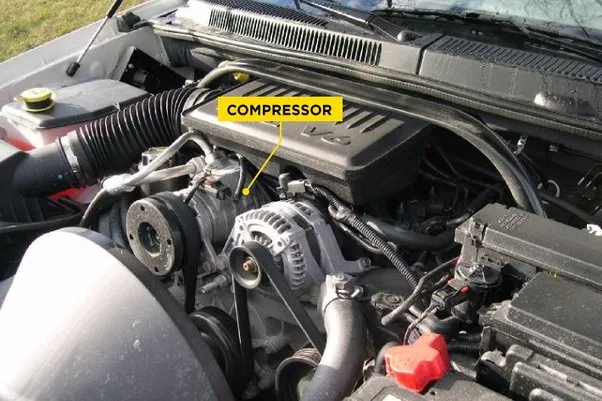The Role of an Air Conditioaner Compressor in Your Car’s Cooling System

The air conditioner compressor car plays a crucial role in keeping your cabin cool. Understanding its function and ensuring proper maintenance is essential to maintaining a comfortable ride, especially during hot weather. This article delves into how the AC compressor works, common problems, and maintenance tips to keep your vehicle’s cooling system in optimal condition.
How Does an Air Conditioner Compressor Work?
The air conditioner compressor is the heart of the car’s AC system. It is responsible for pressurizing and circulating the refrigerant, enabling the cooling process. Here’s a breakdown of its function:
- Refrigerant Compression: The AC compressor compresses the low-pressure refrigerant gas, raising its temperature and pressure.
- Heat Dissipation: The high-pressure gas then moves to the condenser, where it releases heat and turns into a high-pressure liquid.
- Expansion and Cooling: The refrigerant passes through the expansion valve, reducing pressure and temperature before entering the evaporator.
- Air Cooling: The evaporator cools down the air, which is then blown into the cabin, providing a comfortable temperature.
Without a functioning compressor, this cycle cannot take place, leading to ineffective cooling or complete AC failure.
Common Problems with Car AC Compressors
Like any mechanical component, the AC compressor is prone to wear and tear. Here are some common issues:
1. Refrigerant Leaks
Leaks in the AC system can cause refrigerant levels to drop, leading to inefficient cooling. A lack of refrigerant can also cause the compressor to overheat and fail prematurely.
2. Clutch Failure
The compressor clutch engages and disengages to regulate cooling. A faulty clutch can prevent the compressor from functioning correctly, leading to inconsistent cooling or total failure.
3. Electrical Issues
Wiring problems, blown fuses, or faulty sensors can affect the compressor’s performance. Regular electrical system checks can help prevent such issues.
4. Contaminants in the System
Dirt, debris, and moisture can contaminate the refrigerant and damage internal compressor components. This can lead to inefficient cooling and costly repairs.
5. Worn-out Bearings
The compressor contains moving parts that require lubrication. If bearings wear out, it can cause excessive noise, reduced efficiency, or total failure.
Importance of Maintaining Your Car’s AC Compressor
Proper maintenance of the AC compressor is vital for its longevity and performance. Here are some essential maintenance tips:
1. Regularly Check Refrigerant Levels
Low refrigerant levels can strain the compressor. Have your AC system checked regularly to ensure it has the right amount of refrigerant.
2. Clean or Replace the Cabin Air Filter
A clogged air filter reduces airflow and puts extra stress on the AC system. Cleaning or replacing the filter helps maintain efficient cooling.
3. Run the AC System Regularly
Even in colder months, running the AC system periodically helps keep the compressor lubricated and prevents seals from drying out.
4. Inspect the AC Belt and Clutch
A worn-out or damaged belt can affect the compressor’s performance. Regular inspections and replacements when necessary can prevent unexpected failures.
5. Get Regular AC System Servicing
Routine servicing by a professional can help detect and fix minor issues before they escalate. This includes checking for leaks, inspecting electrical components, and testing overall performance.
Signs of a Failing AC Compressor
If your AC system is not working correctly, it may be due to a failing compressor. Here are some signs to watch for:
- Weak or No Cooling: If the air blowing from your vents is not cold, it could indicate compressor problems.
- Loud Noises: Grinding, squealing, or rattling noises when the AC is on may suggest internal compressor damage.
- AC Clutch Not Engaging: If the clutch does not engage, the compressor will not function properly.
- Refrigerant Leaks: Visible leaks or low refrigerant levels may indicate compressor failure.
When to Replace Your AC Compressor
If your compressor has failed, replacing it is often the only option. Continuing to use a faulty compressor can lead to further damage to other AC components. When replacing the compressor, it is also a good idea to check the entire AC system, including the condenser, evaporator, and refrigerant lines.
Conclusion
The air conditioner compressor car is a vital component in your vehicle’s cooling system. Understanding how it works, recognizing signs of failure, and following proper maintenance practices can ensure a comfortable and cool driving experience. Regular checks and professional servicing will help extend the life of your AC compressor, keeping your car’s air conditioning system in top shape.




